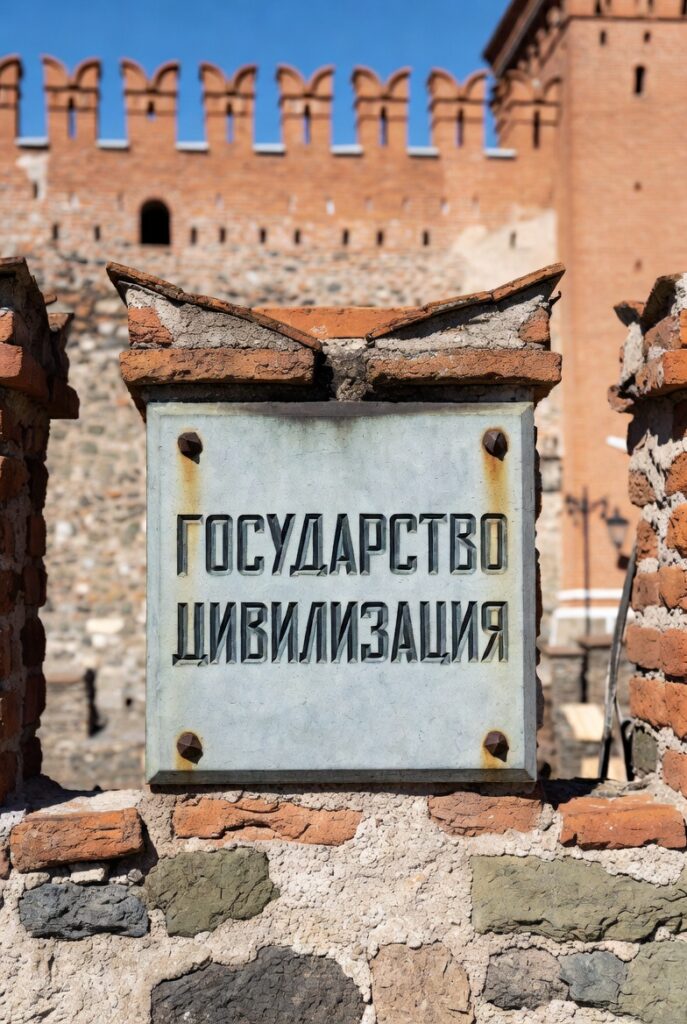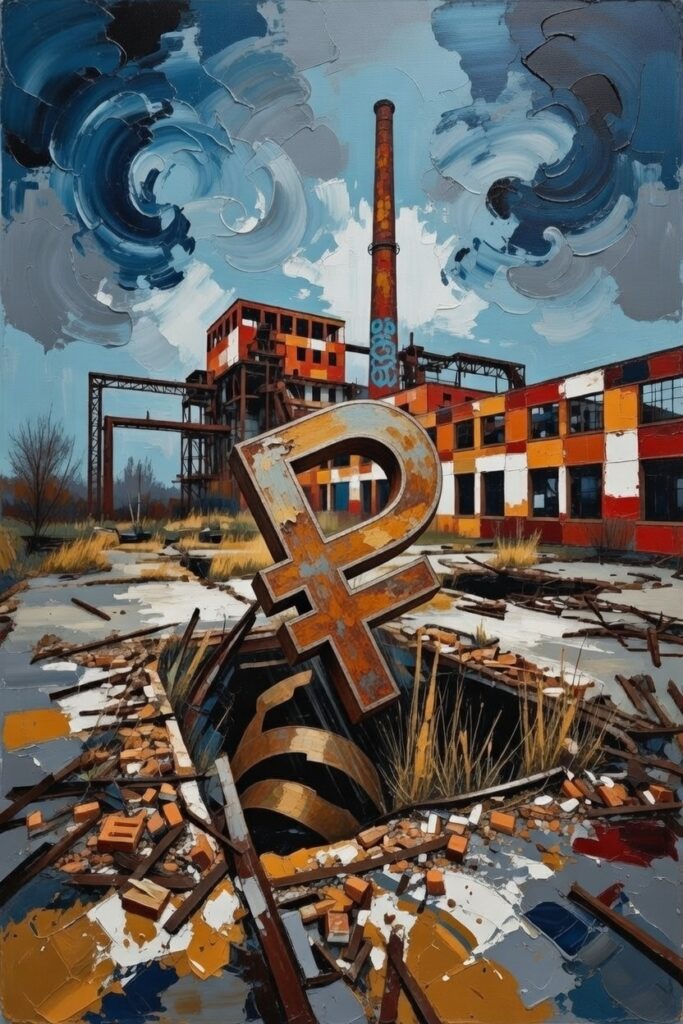Vladimir Putin has begun the traditional series of end-of-year meetings with leaders of parliamentary factions. These meetings give us a good idea of how the Russian president perceives the party system and its functioning in the parliament. Putin talks to the faction leaders almost as if they were civil servants in charge of direct interaction with the population, collecting their pleas and requests, some of which are then passed on to the top of the power vertical. Among the parties themselves, he believes, there may be minor disagreements, but they all work within the same system. The system is not unlike the National Front in the German Democratic Republic, which formally united several parties and nominated a single list for the elections to the country’s People’s Council. The Front was coordinated by the Socialist Unity Party of Germany. In 2011, the Russian authorities tried to create such a structure, called the All-Russian People’s Front, which initially encompassed the «United Russia» party and several smaller ones loyal to the Kremlin. However, it never went as far as nominating unified lists and joining the larger parliamentary structures («Just Russia», LDPR or Communists). The party system exists in a «semi-frontlike» format, which means that all players support initiatives important to the authorities and take into account the wishes of the presidential administration when nominating candidates for elections at various levels.
Putin’s exchange with Vladimir Vasilyev, the leader of the «United Russia» faction, helps define the contours of the party system in Russia today and explains how the Kremlin is trying to «sell» this system to the public. Almost immediately, Putin tells Vasilyev that either the parliament or the «United Russia» party (the Russian leader uses the vague pronoun «you») «formed the government.» And the leader of the «United Russia» faction gladly agrees with him. According to the new version of the Constitution, the Duma does indeed approve not only the prime minister, but also his deputies and most of the ministers. However, these actions cannot exactly be called the formation of the government. The candidacy of its chairman is proposed by the president, not by the ruling party. Then the head of the cabinet approves the nominations of deputy prime ministers and heads of ministries from the parliament. MPs can agree or disagree with them, but they usually agree.
Vasilyev described relations within the party system as follows: «We are now actively involved in the preparation of the budget. It is not an easy process. Let’s say that the Communist party has its position on a number of issues, other parties also have their position. And in these conditions we can be supported by people only when we really act effectively and people understand what is in their interests. Let’s say Gennady Andreyevich [Zyuganov, leader of the Communists] says: we do what people want. We answer: we do what we can out of what people want, so that we can do more later.» In other words, according to Vasilyev’s version, which Putin agrees with in public, there are no critical ideological differences between the «United Russia» party and the Communists; there are only stylistic differences.
Vasilyev clearly and frankly outlined the extent of MPs’ powers and responsibilities. From declarative arguments about the formation of the government, the faction leader quickly moved on to detailed stories about how parliamentarians help the Audit Chamber and the Ministry of Finance to control the construction of social facilities. «We have learned to exercise control. The MPs are ready to do it, we will do it. We simply have no way out. What else can we offer people? Only this.» said Vasilyev. And Putin again agreed. At the end of the conversation, the «United Russia» party leader assured the president of the «productive working atmosphere in the parliament» and that MPs from different factions «sometimes have debates».
This seemingly routine meeting says a lot about what the Russian party system has become: representatives of different parties «sometimes engage in debates» but generally agree on everything and want the same things. Their main function is not to draft laws but to control the spending of the budget. Otherwise, parliamentarians approve the initiatives of the Kremlin and the cabinet, be it laws or ministerial nominations. To encourage the MPs, the Kremlin may even tell them that they supposedly form the government. No other government official has ever spoken so openly about how the system sees the limits of parliamentarians’ powers. In an authoritarian system, MPs become «people’s watchdogs», controlling the construction of small (schools and hospitals) rather than global projects. This version is likely to be heard more and more in the run-up to the State Duma elections. The «United Russia» party MPs already agree with it and are eaget to voice it publicly. It is unlikely that representatives of other parties will argue with it.
Kursk-style sackings
Residents of the border areas of the Kursk region, now occupied by the AFU, took to the streets in protest. On 10 November, several dozen people gathered in the main square of Kursk and demanded to be given housing. Subsequently, the man whom the security forces considered to be the organizer of the rally was fined, but the authorities assessed the threat of the protests and called a large meeting with federal and regional officials. The meeting was attended by an impressive federal force: Marat Khusnullin, deputy prime minister for construction, and Roman Starovoit, former head of the region and now transport minister. The atmosphere at the meeting was rather tense, as the locals accused the authorities of failing to provide them with the same comprehensive assistance that they felt was being provided to residents of the annexed Ukrainian territories, while the refugees from the border regions argued that the authorities were not doing enough to help them. Many participants of the meeting were not satisfied with the answers given by the authorities, including the promise to issue housing certificates and establish rent payments within a few months, and simply walked out of the hall.
The main tool used to quell the people’s anger was the public resignation of the heads of the Suzhansky and Korenevsky border districts, who were accused of mismanaging the organisation of the mass evacuation. But Alexander Bogachev, who has since lost his job as head of the Sujansky district, boldly declared that the higher authorities (both federal and regional) had made him the scapegoat for all the people’s problems. And he has a point. The authorities chose an old tactic: they staged the public sackings of middle-ranking officials who did not have the resources to solve the problems of the residents who had provoked the protests. Russian municipalities have been stripped of most of their powers and have small budgets. District chiefs could not have possibly provided housing for refugees even if they wanted to. The sacking of subordinates is often used by candidates for governor of Russian regions as a means of quickly gaining public sympathies or defusing public tension. But these sackings are not solving the problems themselves. If the regional and federal authorities stop making personnel decisions at lower levels of government, the Kursk refugees’ protests may resume with renewed vigour, and the previous discontent may be compounded by disappointment in the frustrated promises of top officials. In this case, however, the Kremlin could sacrifice a rather large but not key figure: the Kursk regional governor Alexei Smirnov, who was elected in September this year. This will reassure people for a while, since the grievances of the population are still primarily directed at the regional leadership.










